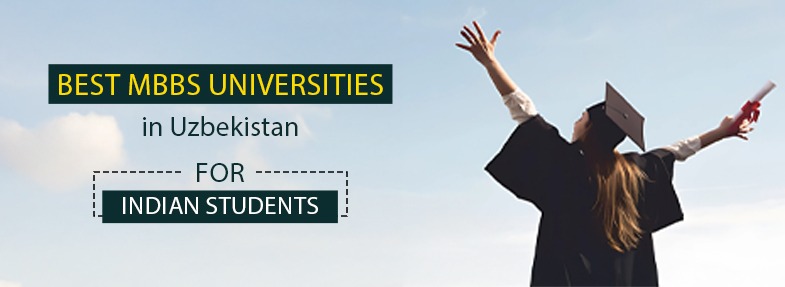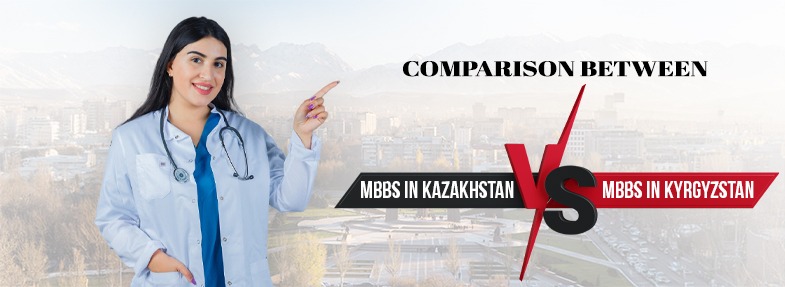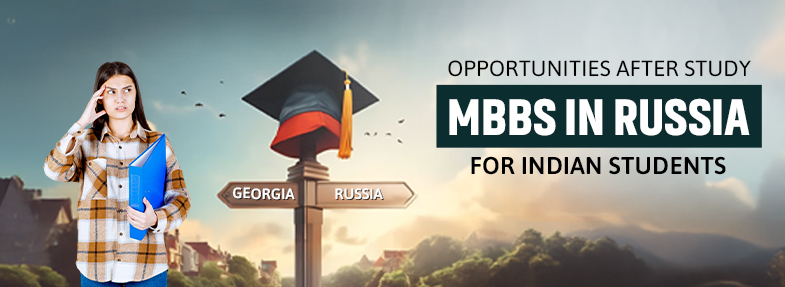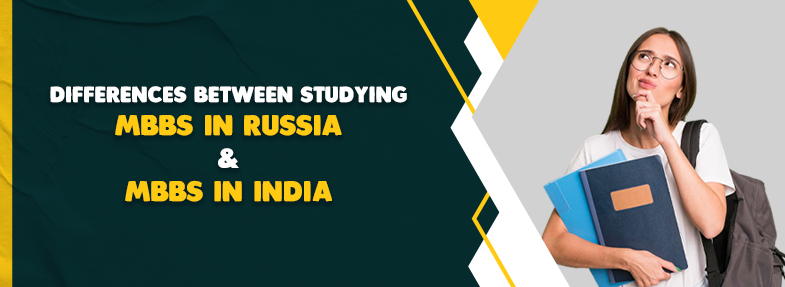Are you considering MBBS but need help determining where to study?
There are differences between studying for an MBBS in Russia and India. Both countries have excellent medical education but different advantages and challenges. Choosing to study MBBS in Russia offers cultural immersion and a global perspective. With modern facilities, low tuition, and top medical schools,
Russia is a popular destination for international students.
However, MBBS in India offers a diversified patient population, medical conditions, and a healthcare system. Those seeking international experience may prefer to study MBBS in Russia, whereas those interested in understanding the Indian healthcare system may prefer it in India.
Consider curriculum, pricing, language challenges, cultural adaptability, and post-graduation options when choosing.
In this blog, we will compare to study MBBS in Russia and India to help you decide.
Overview of medical education in Russia and India
Russia
Medical Education Overview
- Russia has several top medical universities and a long history of high-quality medical education.
- Russian medical school follows a 6-year MBBS program like many European countries.
- International accrediting authorities like the WHO and NMC of India recognise Russian medical universities.
- Basic, clinical, and practical medical courses are taught.
Admission process for MBBS in Russia:
- Studying for an MBBS in Russia often requires an entrance exam and interviews with international students.
- Common eligibility conditions are:
- High school diploma or equivalent with outstanding scientific grades.
- Minimum NEET or IELTS/TOEFL scores for English competence.
- Application, transcripts, and supporting documents.
- Some universities demand a separate entrance exam or interview.
- Examining the admission requirements for the preferred Russian medical university is crucial.
India
Medical Education Overview: India
- The Indian medical education system has many governmental and private medical colleges.
- The Indian MBBS program takes 5.5 years, including a 1-year internship.
- NMC-recognized Indian medical colleges follow standardised curricula and norms.
- The WHO and other international accrediting bodies recognise many Indian medical colleges.
Admissions and Criteria:
- A centralised entrance exam, the National Eligibility cum Entrance Test, makes MBBS admission in India competitive.
- The NEET eligibility criteria are usually:
- A 10+2 with Physics, Chemistry, and Biology is required.
- Minimum NEET scores vary by category (general, reserved, etc.).
- Some medical universities assess interview and secondary admission test performance besides NEET.
- You must complete applications, submit documentation, and attend counselling to get into a medical school.
- Reservation and quota seats for distinct student groups also affect admissions in India.
Russia's and India's medical school systems have pros and cons, so choosing one relies on personal preferences, career ambitions, and circumstances.
Curriculum and duration of MBBS programs in Russia and India
Russia:
Duration of MBBS course in Russia last 6 years and include:
- 2 years of foundational pre-medical courses
- Four years of medical school, including theory and practice
- The curriculum covers many subjects, including:
- Basic sciences (biochemistry, microbiology, anatomy, physiology)
- Clinical sciences (internal medicine, surgery, paediatrics, OB/GYN, etc.)
- Specialised electives, research
- The curriculum includes classroom and clinical training in hospitals and healthcare centres.
- The last year usually involves a dissertation or research project.
India:
MBBS in India takes 5.5 years and includes:
- 4.5 years of medical school
- 1 year of required internship
- Three phases comprise the curriculum:
- Phase I (1.5 years): Medical basics (anatomy, physiology, biochemistry)
- Para-clinical subjects (pharmacology, pathology, microbiology) Phase II (1.5 years)
- Phase III (1.5 years): Clinical subjects (medical, surgical, paediatric, obstetric, gynaecological)
- The National Medical Commission (NMC) curriculum comprises theory and practice.
- The curriculum requires clinical training in various hospital departments.
Medical Education Quality in Russia and India:
Russia:
- Several top medical universities in Russia for MBBS and a long history of distinction.
- Russian medical schools are noted for their demanding curriculum, modern facilities, and experienced teachers.
- Russian medical education is rigorously controlled and approved by foreign authorities, ensuring quality.
- Medical graduates from Russia are accepted globally, even in India.
- Experience with advanced medical technologies and practical training make the curriculum high-quality.
India:
- India has a robust medical education system with several medical colleges and universities.
- Indian medical education is regulated by the National Medical Commission (NMC) to ensure quality and uniformity.
- International authorities like the WHO recognise many Indian medical colleges, and their degrees are acknowledged worldwide.
- Indian medical colleges offer a balanced curriculum that covers theory and practice.
- Indian medical graduates are sought after worldwide for their clinical and analytical talents.
- The enormous number of medical students and few high-quality medical colleges can make sustaining quality across all institutions difficult.
Russia and India have strengths in medical education; however, quality depends on the institution and the student's performance and desire.
Language of instruction in MBBS programs in Russia and India
Russia:
- Russian MBBS teach mainly in Russian.
- However, several Russian medical institutes offer MBBS programs in English to accommodate the expanding number of overseas students.
- English-taught MBBS programs in Russia follow the same curriculum and award the same degree.
- Russian English-medium MBBS students must pass IELTS or TOEFL tests.
India:
- MBBS in India are mainly in English.
- Most Indian medical colleges teach in English, the standard language of healthcare and medical literature.
- Indian medical schools employ English for lectures, texts, exams, and clinical training and have a standardised curriculum.
- MBBS applicants in India must pass the National Eligibility cum Entrance Test (NEET) in English.
Cost of MBBS in Russia and India:
Russia:
- There is a variation in the MBBS in Russia for Indian students depending on the university and course.
- International students studying in top medical universities in Russia for MBBS usually pay around three to seven thousand dollars annually.
- Additional housing, food, transport and lifestyle costs can range from $3,000 to $6,000 per annum.
- Scholarships and financial aid may reduce the cost of pursuing an MBBS degree in Russia.
India:
- The tuition fees for MBBS vary widely across Indian medical colleges depending on whether they are public or private.
- MBBS programs offered by government-run (public) medical institutes commonly charge between $1,000 and USD 3,000.
- Such rates can escalate when it comes to private medical colleges that demand as much as twenty-five thousand dollars annually for tuition fee purposes only.
- Other expenses, including accommodation, meals, and transportation, can add up to $5k annually.
However, scholarship grants are limited, although competitive among many people who need them.
Living Conditions and Cultural Experience in Russia and India:
Russia:
- Residential conditions within Russia depend on both specific cities and dwellings.
- In Moscow or St Petersburg, excellent living conditions and modern facilities are available throughout these cities.
- For international students, university dormitories and private residences have various degrees of comfort and convenience.
- International students may find adapting to the Russian language and culture difficult, but it may be worthwhile.
India:
- Modern, well-equipped cities and rural areas are available in India.
- Indian medical schools often offer on-campus housing or help students find housing.
- India provides a rich cultural experience with varied religions, cultures, and languages.
- International students may need to acclimatise to diverse food, temperature, and transportation networks.
- Exploring historical places, festivals, and thriving local communities in India can expand your cultural experience.
Top Medical Universities in Russia
These top medical universities in Russia for MBBS are well-liked by international students wishing to pursue MBBS degrees since they are all well-regarded in Russia's medical education system. Every institution serves prospective medical students' many requirements and interests, each with its specialisations and capabilities.
Immanuel Kant Baltic Federal University:
This university, located in Kaliningrad, is well-known for its medical program.
It offers MBBS programs with an emphasis on incorporating contemporary medical procedures.
Bashkir State Medical University:
A well-known university in Ufa with a significant emphasis on medical research.
It offers extensive MBBS programs in cutting-edge facilities.
Maikop State Medical University:
This Maikop-based university is well-known for its clinical training and MBBS curriculum.
It was recognised for its commitment to generating comprehensive medical practitioners.
Kabardino-Balkarian State University:
This esteemed university in Nalchik provides a varied curriculum for its MBBS program.
Also, it focuses on giving its students a comprehensive medical education.
Kazan State Medical University:
This university, well-known for its superior medical education, is in Kazan.
Also, it provides a thorough MBBS curriculum focusing on innovation and research.
Omsk State Medical University:
This Omsk-based university is well-known for its excellent MBBS curriculum.
Renowned for its skilled teachers and modern medical facilities.
Far Eastern Federal University:
This Vladivostok-based university is home to a reputable medical school.
It offers MBBS programs emphasising advances in medicine and global health.
Chechen State Medical University:
This Grozny-based institution provides an extensive MBBS program.
She is acknowledged for her dedication to generating knowledgeable and morally upright medical personnel.
Yaroslavl State Medical University:
This Yaroslavl-based university is well-known for its clinical education and MBBS curriculum.
We are recognised for placing a high priority on community-based healthcare and research.
Conclusion and choosing the right option for studying MBBS
When picking between MBBS in Russia and India, students should carefully examine variables like curriculum, language of teaching, cost, and cultural experience. While Russia offers a 6-year MBBS with the option of English-medium courses, India's 5.5-year program primarily employs English. Although Russia is expensive, both countries provide scholarships. The cultural immersion in each location will vary, requiring adaptability. To pick intelligently, students should evaluate their academic priorities, language skills, financial capacities, and career aspirations. Researching university reputations and accreditation is crucial. A holistic review considering the student's interests and goals should determine the selection. With careful study, Russia or India might offer a satisfying medical education and career.
Navchetana International Education: Planning the Path for Bright Medical Career
Medical career is the most prestigious career in India, selecting it is quite difficult. We are here with you in each step of your future. As a consultancy we are creating a bridge between students in India and MBBS options abroad. Select the best option with us for the most demanding education opportunities.
Consider us for study MBBS in Abroad | MBBS in Kazakhstan | MBBS in kyrgyzstan | Study MBBS in Uzbekistan




